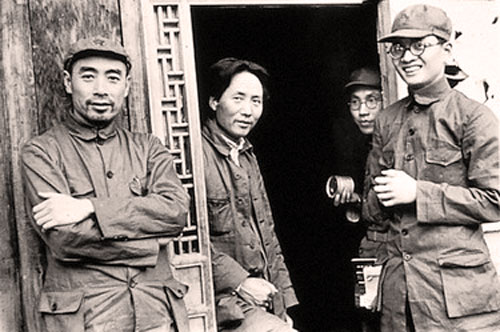Why didn't China attack Taiwan? (a hypothesis)
The inaction of China reportedly deeply disappointed the Russian elites. That's understandable. Many expected that China would exploit the chaos in Europe seeing it as a chance to conquer Taiwan. Still, they didn't invade. Why?🧵
The inaction of China reportedly deeply disappointed the Russian elites. That's understandable. Many expected that China would exploit the chaos in Europe seeing it as a chance to conquer Taiwan. Still, they didn't invade. Why?🧵

Throughout its history China suffered from the uncountable number of civil wars and inner conflicts. Naturally, some of them could trigger the Chinese expansion rather than hamper it, transition from Ming to Qing being probably one of the most vivid examples 

With the victorious Qing army marching south, the last Ming loyalists had little choice but to escape. A fraction led by a Ming loyalist and a pirate admiral Koxinga chose to evacuate their base from the mainland. The Dutch-controlled Taiwan (Formosa) looked as an obvious choice 

Koxinga's troops smashed the Dutch and took control of the island. Tonio Andrade whom I highly recommend framed this as the victory of China over the West. But it was not the central government in Beijing that captured Taiwan for China, it was a defeated fraction in the civil war 

Civil strife being a trigger of the territorial expansion is a well-known pattern in the history of the British Isles. Stuarts are imposing the High Church (yeah, it's ahistorical term, but it conveys the idea) conformity so the Puritans have to escape to what is now New England 

Civil War brings the fall of the Stuarts and the Low Church triumphs over the High . Most English overseas possessions were reluctant to accept the defeated Cavaliers. Except for Virginia, whose governor welcomed them warmly. Soon they comprised the bulk of the local ruling class 

Considering that the American North and the South were built by the political emigres who represented the two opposing fractions in the English Civil War, and hold the opposite views on nearly everything, it's striking how they managed to live in relative peace for so long
At least this is the impression I had when reading this book. You may disagree with its conclusions, but they're certainly interesting. Its argument is way more nuanced than what I just outlined, I just don't want to go any further for now 

Thinking in higher orders, the story of the British civil wars and the emigration waves they triggered reminded me of the following idea. "It was probably the inability to live in peace with each other rather than thirst for food or resources that triggered the human expansion"
The Transition from Ming to Qing that triggered the destruction of European colonies on Taiwan and the true incorporation of the island into China may be a good example of this pattern. It was not the government who conquered it, it were the evacuating rebels 

Being located far enough from the mainland to grant a certain security but close enough to allow for a mass evacuation, Taiwan was an obvious choice of a safe haven for a losing fraction in the civil war. In the 17th c it would be Ming, in the 20th c it was the Kuomintang 

The civil war between the KMT and the Communists with the numerous warlord fractions clinging to this or that side, had been going for decades. During the WWII the KMT was too busy fighting the Japanese. WIth the KMT attention deflected, the Communists grew very much stronger 

Upon the end of the WWII, Communists were ready to crystallise their new influence by effectively dividing the country with the KMT. In 1945 Mao Zedong offered Chiang Kai-shek to keep the south, living a few northern provinces (including Beiping) to Mao. Chiang refused. See p. 55 

Back in 1945 Communists wanted to divide China into two zones of influence because they still perceived themselves as a weaker side in the civil war. But by 1949 they were winning. With victorious Communists marching south, the KMT had little choice but to evacuate to Taiwan 

Let me summarise:
- It's not necessarily the unity that triggers the territorial expansion. It's quite often the division
- It was the division of China that triggered the incorporation of Taiwan into its structure. Taiwan was an obvious refuge for the losers in a civil war
- It's not necessarily the unity that triggers the territorial expansion. It's quite often the division
- It was the division of China that triggered the incorporation of Taiwan into its structure. Taiwan was an obvious refuge for the losers in a civil war
- Communists didn't always stand for the unity of China. They wanted to divide it while being weaker
- In 1945-1949 the balance of power between the CPC and KMT reversed
- Taiwan was the only foothold the KMT could evacuate to and realistically hope to keep from the CPC onslaught
- In 1945-1949 the balance of power between the CPC and KMT reversed
- Taiwan was the only foothold the KMT could evacuate to and realistically hope to keep from the CPC onslaught
That's enough for today, I'll continue next time. End of 🧵
• • •
Missing some Tweet in this thread? You can try to
force a refresh





